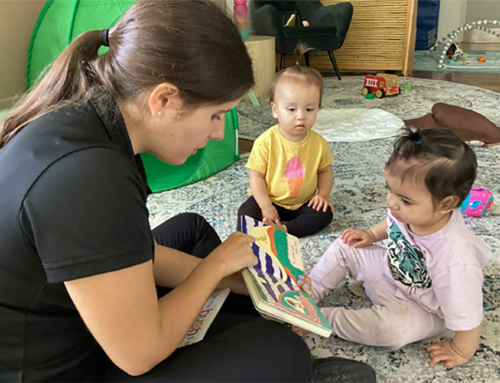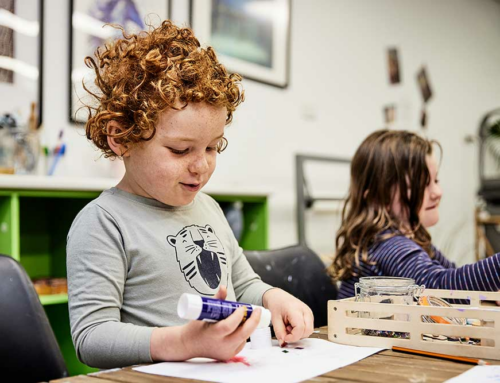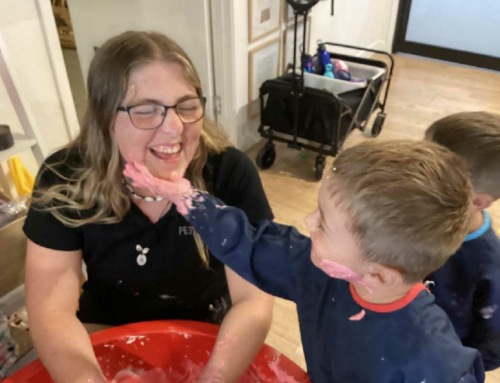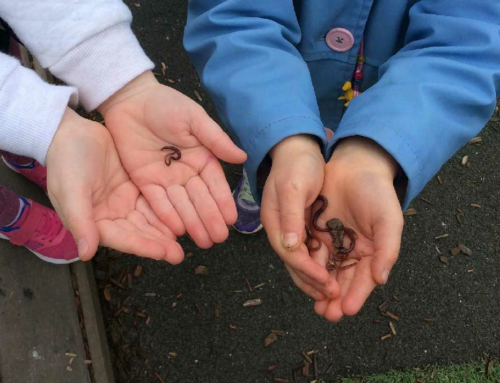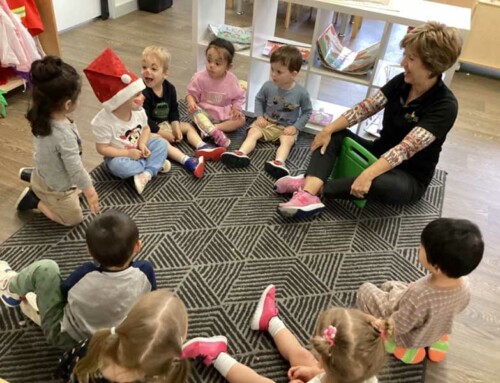Giving families in need a helping hand can make all the difference to someone trying to get back on their feet, especially if they have children who are not always guaranteed access to healthy food, a roof over their head or experiences they enjoy at home.
Families at Petit Early Learning Journey know what it means to lend a helping hand. Every year, our services support their communities in many different ways and our Educators engage children in finding meaningful solutions that help others.
Good examples are contagious, and the examples set by families and children who help vulnerable families or people can be especially powerful. There are some families that experience events or stresses that make it difficult to function including illness, separation, homelessness and poverty.
That’s why we’ve put together a list of 16 different ways you can give a helping hand to families and individuals doing it tough in your community.
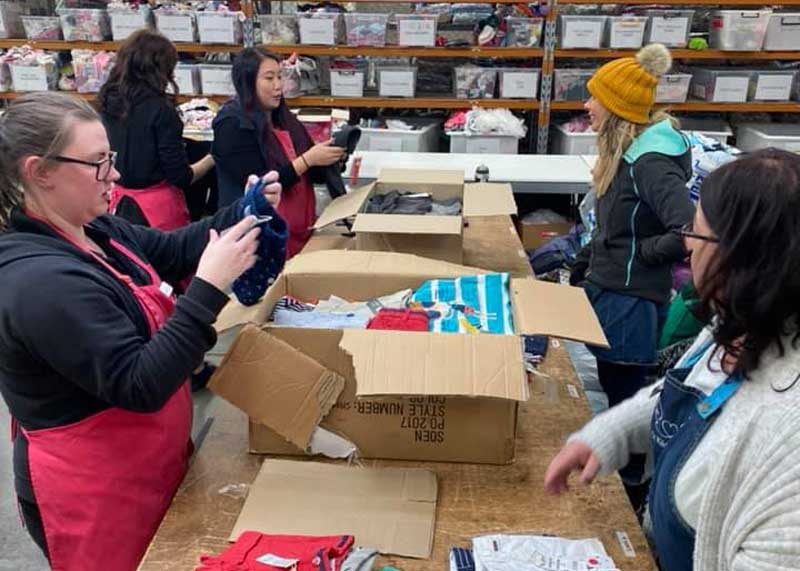
16 Ways you can give families in need a helping hand
To give families in need a helping hand, you have to get involved. We’ve put together a list of ideas below on how you and your family can help others less fortunate. Some of these ideas are supported through our early childhood education services throughout the year.
- Give to or shop at local charities for food. There are many different types of food banks and pantries around Australia that are helping people in need. Some food pantries encourage everyone to shop with them as it means they then have the funds to help people who need fresh food in emergencies.
- Do you grow your own fresh food? If you are neighbours with families who are doing it tough and you have fresh food you can share, start a neighbourly conversation and give them nutritious food from your garden. Perhaps, they just need a neighbourly hand to start their own garden.
- Donate money to your local food charity or homeless shelter. Monetary donations allow charities for food to stay open, pay bills and purchase supplies and services they need. It also allows them to sponsor other programs and help low-income families and homeless people.
- Volunteer at your local soup kitchen or homeless shelter for a couple of hours per week. If you can’t commit weekly, consider helping out once or twice or month. You can discover a range of volunteer opportunities near you at GoVolunteer.
- Donate gently used clothes to the Australian Red Cross or Saint Vincent de Pauls (Vinnies). As the things we donate have changed since the start of the Covid-19 pandemic, it is always a good thing to check what you can and can’t donate.
- Create a donation box for your children at home to put in their unwanted or outgrown toys. Sort out those that are clean and undamaged and donate them to places like Save the Children Op Shops that accept pre-loved items in good condition.
- Put together care packages for soldiers serving overseas. Even soldiers struggle especially when they are overseas and away from their families. Australia Post sends care packages from the community to overseas deployed service personnel twice a year.
- Sponsor an Australian child in need through the Smith Family. The Smith Family support disadvantaged Australian children who need help with things like school books, clothes and shoes.
- Ask your early childhood service how you can help provide assistance to families. Some childcare centres create their own community corners for donated things like clothes, books, toys and other gently used things that families can donate to and take from when needed. It also promotes sustainability.
- Collect clean and undamaged used children’s books (from people you know and trust). Sanitise them if necessary, and donate them to your early childhood service’s library or underfunded schools and local public libraries so that every child has access to educational literature.
- Organise a community garage sale in your street where the money raised is donated to a charity for families in need.
- Turn your birthday into a fundraising event, where instead of presents you ask family and friends to donate to a worthy cause that helps families in need, or a local community group that supports the disadvantaged.
- Get a group of your friends together and make blankets or hats for local homeless shelters in need during the winter and summer months.
- Visit nursing homes or assisted living facilities on a regular basis. Share fun stories or play board games with people who may not have much of an opportunity to socialise with others often.
- Donate time, items or funds to Aboriginal and Torres Strait Islander peoples across Australia who are experiencing hardship. There are several organisations that provide support to first nations families and people.
- Advocating for change is another way that you and your family can give a helping hand to those less fortunate including low income families. You can help raise funds for advocacy organisations, or write letters to politicians and ask them to support policies that benefit families doing it tough.
While groups that provide assistance to families and other important services will be appreciative of cash donations, giving up time and effort is equally important. When you volunteer your time and service to the community you get to see the impact of your contribution.

Helping those less fortunate and getting a helping hand
There are several state-based services that provide support for Australian parents. We’ve listed several below that may be able to help you. If you are doing it tough and your child attends an early learning service, especially one of Petit Early Learning Journey’s services please ask your Centre Director for help.
We’re here to help our children and families by connecting you with solutions and effective programs that meet your individual needs.
Services and charities helping families
All States
Queensland
New South Wales
- Mummies Paying It Forward
- Home Start Family Services (Also in Victoria)
- Dandelion Support Network
- We Care Connect
- Gunawirra
Australian Capital Territory
Victoria
- St Kilda Mums
- Olivia’s Place (Warragul)
- Big Group Hug
- Mums Supporting Families in Need
- Fareshare
- Banyule Community Health’s 3081 Angels
Tasmania
Northern Territory
South Australia
Western Australia

Give your child a helping hand with Petit Early Learning Journey
Our goal at Petit ELJ is for all children to develop caring, peaceful and responsible ways to solve problems in life. We believe that all children are capable and competent, driven by their curiosity to explore and learn. As such, children have valuable views and ideas and the right to be heard.
We take an active role in listening to children. We use their ideas and interests to consider how best to challenge and develop their thinking. To learn more about our beliefs and the many different early education and care experiences we can offer your child, visit your nearest service.

